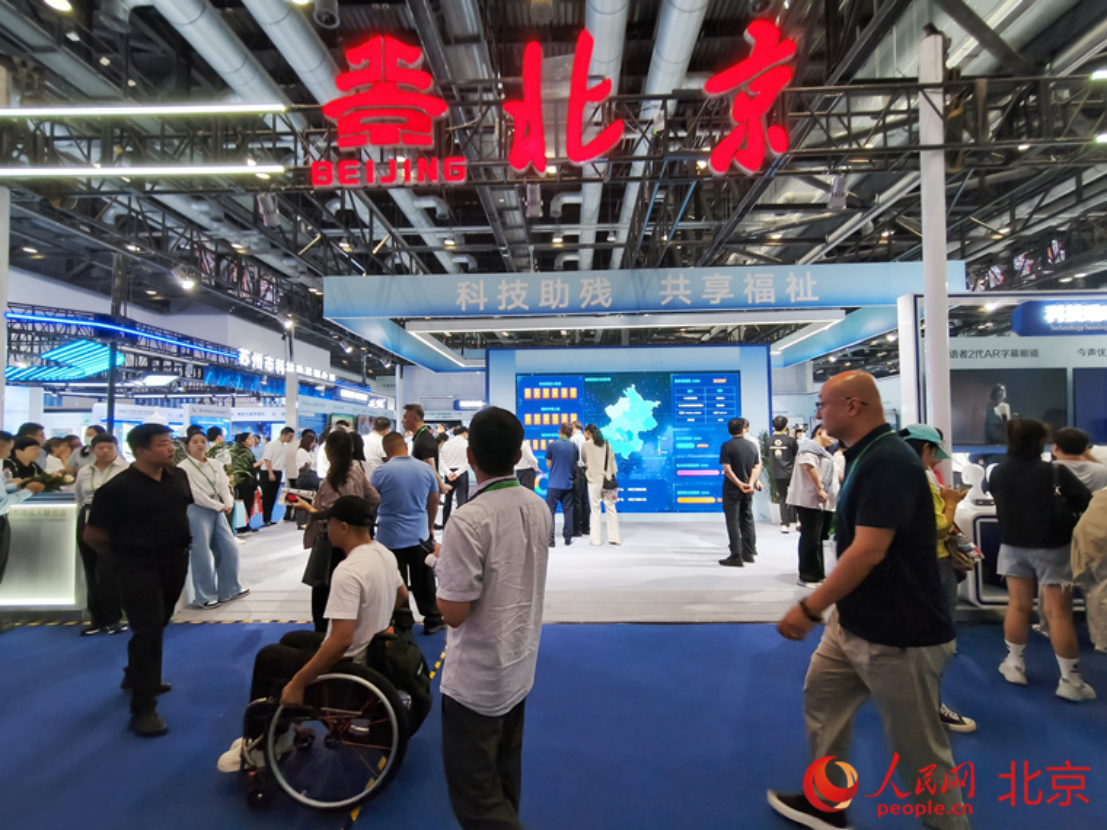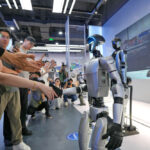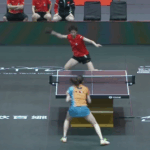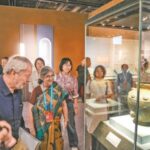The 2025 China International Welfare Expo and China International Rehabilitation Expo was held from September 12 to 14 at the National Convention Center, showcasing new achievements in the “Beijing Model” of technology-assisted disability support. In the carefully designed Beijing exhibition area, visitors were provided with an immersive, multi-dimensional experience of technology-assisted disability support through scenographic and interactive displays.
Welfare Expo Beijing exhibition area.
At this Welfare Expo, the Beijing Disabled Persons’ Federation participated under the theme “Technology-Assisted Disability Support, Shared Well-being,” deeply integrating high technology with the needs of persons with disabilities. The exhibition included three sections: Technology-Assisted Disability Support Achievements, “Internet + Assistive Device Services,” and Smart Home Accessibility Environment, featuring 29 assistive products from 25 companies. It was reported that among these, wearable smart artificial larynxes and brain-controlled rehabilitation robots were unveiled to the public for the first time.
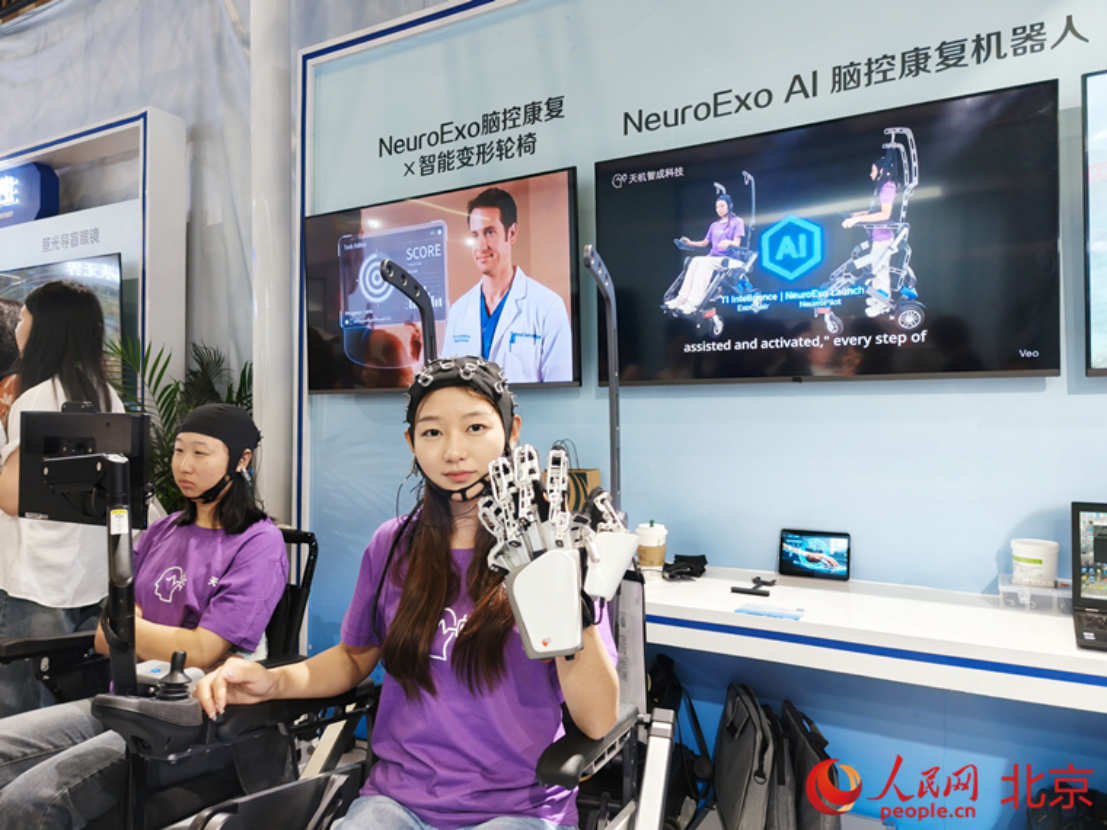
Technology-Assisted Disability Support Achievements exhibition area.
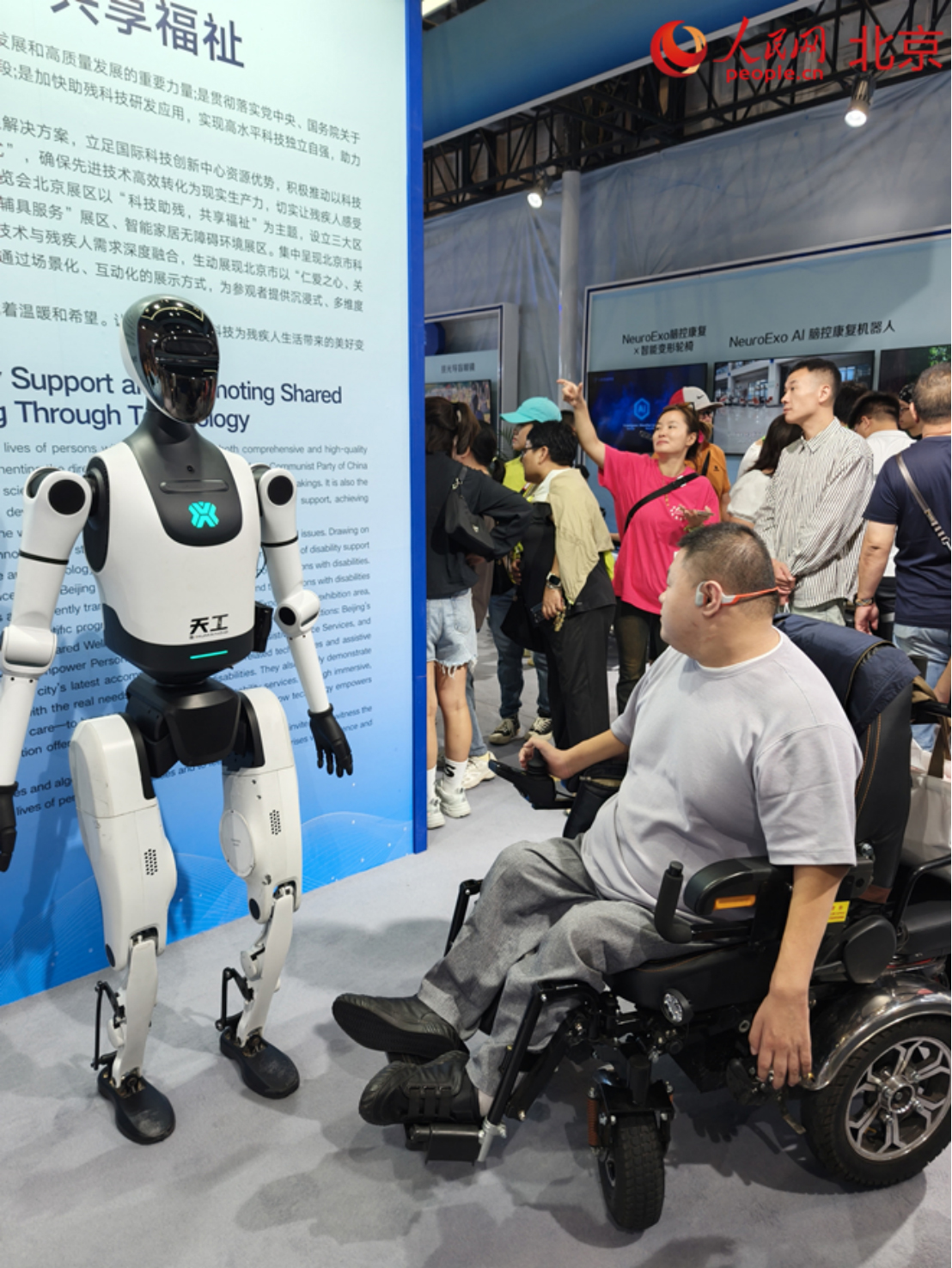
Technology-Assisted Disability Support Achievements exhibition area.
The Beijing Technology-Assisted Disability Support Achievements exhibition area brought together assistive products from high-tech companies such as LLVision and iFlytek, including AR subtitle glasses, subtitle-assisted listening devices, and intelligent brain-computer systems, demonstrating innovative achievements in technology-assisted disability support.
The “Internet + Assistive Device Services” exhibition area used touchscreens and computers to display assistive device policies and the services of the online assistive device platform, providing on-site registration, assistive device applications, and purchasing services for persons with disabilities. The Smart Home Accessibility Environment exhibition area focused on showcasing the application scenarios of accessible environments in homes.
“We regard the research, development, and application of technology-assisted disability support as a crucial support for promoting the high-quality development of the cause of persons with disabilities. We were the first in the country to establish a subsidy system for assistive devices covering all types of disabilities and all age groups, and we created an ‘Internet +’ comprehensive service platform.” The Beijing Disabled Persons’ Federation explained that high-tech products such as AR glasses and subtitle set-top boxes are dynamically included in the platform’s subsidy catalog, allowing persons with disabilities to purchase assistive devices at favorable prices. To date, the platform has served 470,000 persons with disabilities, with over 1.27 million assistive devices applied for.
“Moving forward, we will continue to deepen the ‘Beijing Model’ of technology-assisted disability support, contributing to the high-quality development of the capital and the comprehensive development of the cause of persons with disabilities.”
This expo focused on technology-assisted disability support, featuring exhibition areas for mobility aids, prosthetics and orthotics, auditory and speech rehabilitation/low vision, children’s rehabilitation, elderly care and accessibility facilities, medical equipment/rehabilitation equipment, and more, with a total area of 22,000 square meters. Over 400 domestic and international exhibitors, including assistive device manufacturers and service agencies, displayed advanced products, equipment, and technologies related to clothing, food, housing, transportation, daily use, medical care, education, and entertainment.

